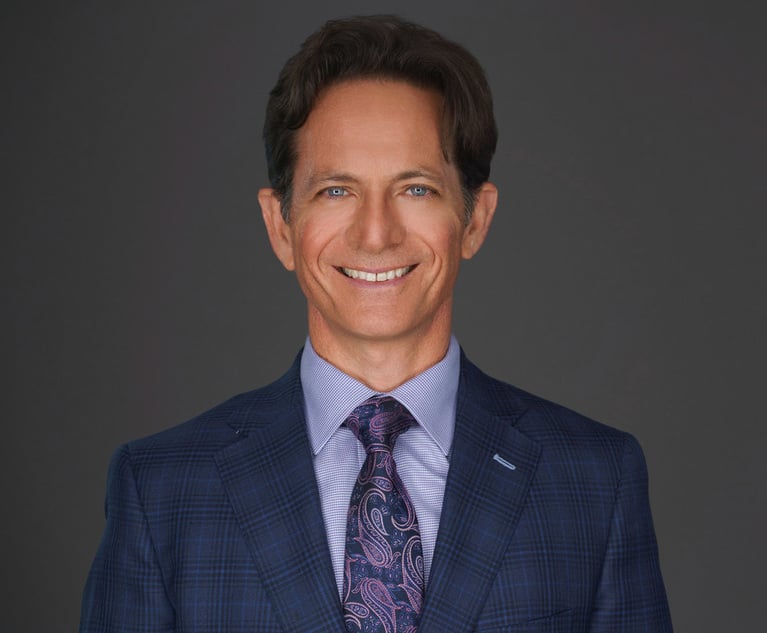Fort Lauderdale Lawyers Win $6.5 Million Over Smoker's Radiation Death
Justin Parafinczuk and Austin Carr of Koch Parafinczuk Wolf Susen, Fort Lauderdale, argued that the radiation therapy that caused musician Glenn Simmons' death would not have been necessary if tobacco companies hadn't encouraged him to smoke in the first place. Simmons, who smoked for 20 years, developed oral cavity cancer — but that wasn't what killed him, according to court filings.
October 29, 2018 at 01:15 PM
6 minute read
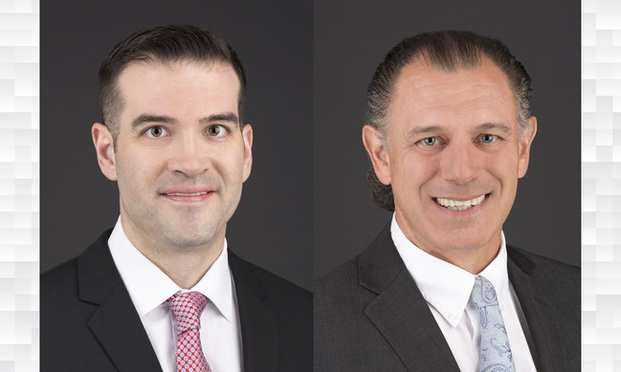 Justin Parafinczuk, left, and Austin Carr, right, with Koch Parafinczuk Wolf Susen in Fort Lauderdale. Courtesy photos.
Justin Parafinczuk, left, and Austin Carr, right, with Koch Parafinczuk Wolf Susen in Fort Lauderdale. Courtesy photos.
Fort Lauderdale lawyers Justin Parafinczuk and Austin Carr of Koch Parafinczuk Wolf Susen used Stuart v. Hertz's causation theory, rarely seen in tobacco cases, to land a $6.5 million Miami-Dade jury verdict for the family of Glenn Simmons, a cancer patient killed by complications after radiation treatment.
Simmons' daughter Hanifah Harewood brought the lawsuit in 2007 against R. J. Reynolds Tobacco Co., owners of Kool Cigarettes, and its two previous owners — Brown & Williamson and the American Tobacco Co.
In Simmons' day, Kool's ad campaigns seemed to speak directly to him.
“They would depict an African-American guy playing a guitar, smoking a cigarette, which was exactly who our client was,” Parafinczuk said.
As a young black man in the 1970s, Simmons played a few shows a week with his band. For the next 20 years, he also smoked a pack of Kool Cigarettes a day, court documents show.
In 1995 Simmons was diagnosed with oral cavity cancer, but that wasn't what killed him.
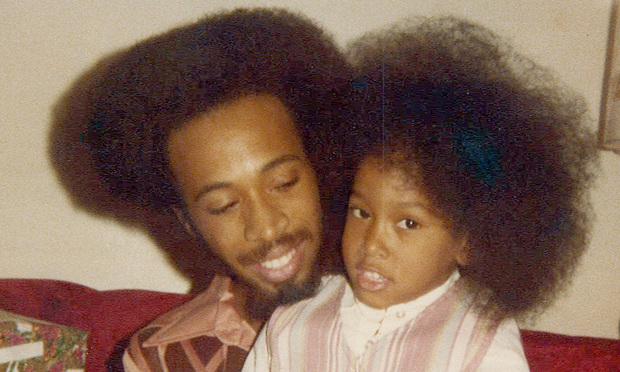 L-R Glenn Simmons and Hanifah Harewood. Courtesy photo.
L-R Glenn Simmons and Hanifah Harewood. Courtesy photo.“He was actually going to be cancer-free,” Parafinczuk said. “But he died from the radiation treatment as a result of having the cancer.”
Simmons died April, 1, 2003, at 48.
Parafinczuk and Carr argued that Simmons was specifically targeted by Kool, based on his lifestyle.
“We know that their tactic in getting people hooked on cigarettes was to saturate certain markets and glamorize cigarette smoking in certain markets,” Parafinczuk said.
R. J. Reynolds denied it was to blame for Simmons' death, and defense attorney W. Randall Bassett, of King & Spalding's Georgia office argued that if Simmons had sought treatment earlier, he wouldn't have needed radiation therapy in the first place.
Bassett did not respond to a request for comment before deadline.
 Kool Cigarettes. Photo: John Disney/ALM.
Kool Cigarettes. Photo: John Disney/ALM.Click here to read the full amended complaint
As with any Engle progeny trial, the plaintiff had to convince a jury that the smoker's nicotine addiction was the legal cause of a smoking-related ailment.
As Simmons didn't die from cancer, the case wasn't straightforward for Parafinczuk and Carr, who instead had to legally link the tobacco companies to Simmons' radiation death.
“It's difficult to present all that to a jury, as opposed to just walking up and saying, 'They got him hooked on cigarettes, nicotine, tobacco and that's what killed him,'” Parafinczuk said. “It's a much more complicated case, and to my understanding that's why very few of them have even been tried in the state.”
Parafinczuk and Carr used the Stuart v. Hertz causation theory, based on a 1977 case in which the Florida Supreme Court ruled that car rental company Hertz Corp. was responsible for the alleged malpractice of a doctor after the plaintiff had a car accident.
The key to a successful Stuart v. Hertz case, according to Parafinczuk, is to avoid deviating from a simple narrative.
“It takes a lot of careful preparation with your witnesses and sticking to your plan for the trial. They've got to mention specific things in their testimony that you want to highlight,” Parafinczuk said.
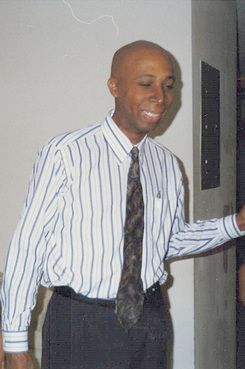 Glenn Simmons. Courtesy photo.
Glenn Simmons. Courtesy photo.In Simmons' case, a Miami-Dade jury found the defendants liable for his death, despite having never administered the radiation.
“You do have a concern with a complicated case like this that (the jury) might not understand and be able to follow the law, but it's clear that they did,” Parafinczuk said.
Dr. Francisco Civantos was the plaintiff's “most important” witness, according to Parafinczuk. Civantos was their expert in odontology — the study of cancer in the mouth. He was also the surgeon who treated Simmons' cancer, the one who “eventually observed him die from the radiation,” Parafinczuk said.
Civantos testified that Simmons died through no fault of his own and acted reasonably when seeking medical help for his cancer — counteracting R. J. Reynolds' argument that he waited too long to seek treatment.
But the jury dismissed that notion, finding that Simmons exercised reasonable care in securing a doctor and following his advice, after relying ”to his detriment” on R.J. Reynolds' representation of the health effects of its cigarettes.
At closing, defense attorney Bassett revisited the testimony of oral pathologist Dr. Samir El-Mofty, who argued that Simmons' cancer was caused by an infection after having a tooth removed.
From Parafinczuk's perspective, that was a “veiled attempt at a defense” that “the jury saw through.”
Click here to read the defense's answer to the complaint
The jury ultimately found Simmons 75 percent at fault, but lay the rest of the blame with R.J. Reynolds. It rejected the plaintiff's push for punitive damages, but did award Harewood $2.5 million in past damages and $4 million in future damages.
Harewood attended the trial, which Parafinczuk said “gave her closure.”
Read the verdict form:
Case: Hanifah Harewood, personal representative of the Estate of Glenn Simmons v. R.J. Reynolds Tobacco Co. et al
Case no.: 2007-46331-CA-02
Description: Wrongful death, product liability
Filing date: Dec. 28, 2007
Verdict date: Sep. 18, 2018
Judge: Miami-Dade Circuit Judge Rodolfo Ruiz
Plaintiffs attorneys: Justin Parafinczuk and Austin Carr, Koch Parafinczuk Wolf Susen, Fort Lauderdale
Defense attorneys: Randy Bassett, King & Spalding, Atlanta
Verdict amount: $6.5 million
Related stories:
Miami Lawyers Land $4.8M For Winn-Dixie Customer Who Went 'Through Hell and Back'
This content has been archived. It is available through our partners, LexisNexis® and Bloomberg Law.
To view this content, please continue to their sites.
Not a Lexis Subscriber?
Subscribe Now
Not a Bloomberg Law Subscriber?
Subscribe Now
NOT FOR REPRINT
© 2025 ALM Global, LLC, All Rights Reserved. Request academic re-use from www.copyright.com. All other uses, submit a request to [email protected]. For more information visit Asset & Logo Licensing.
You Might Like
View All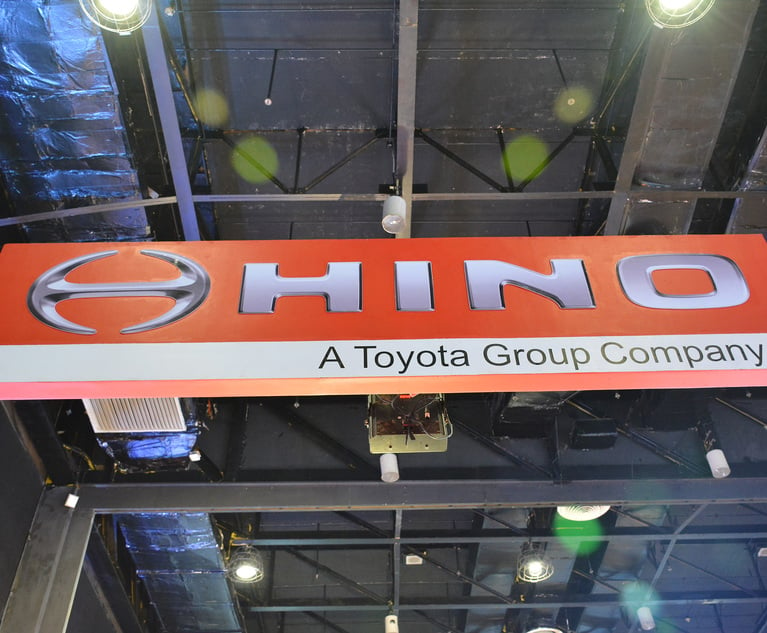
Automaker Pleads Guilty and Agrees to $1.6 Billion in Payouts
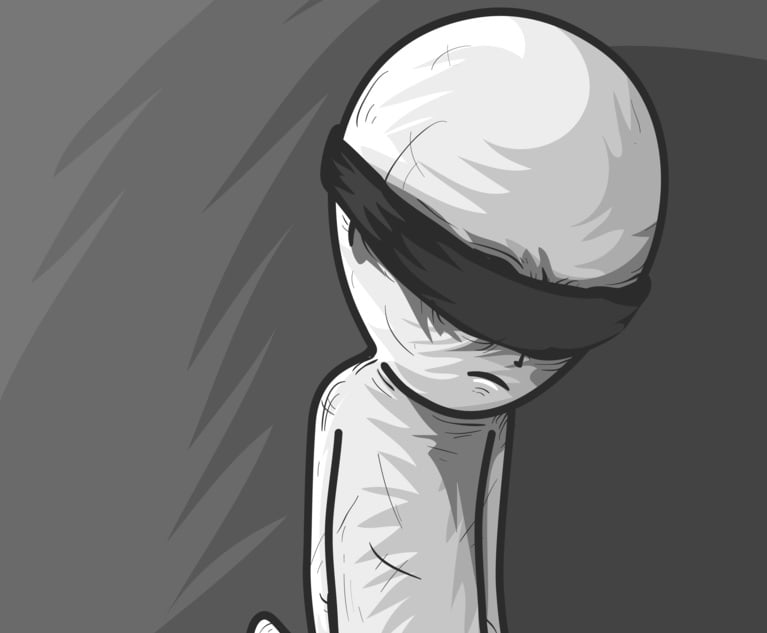
'I've Seen Terrible Things': Lawyer Predicts Spike in Hazing Suits
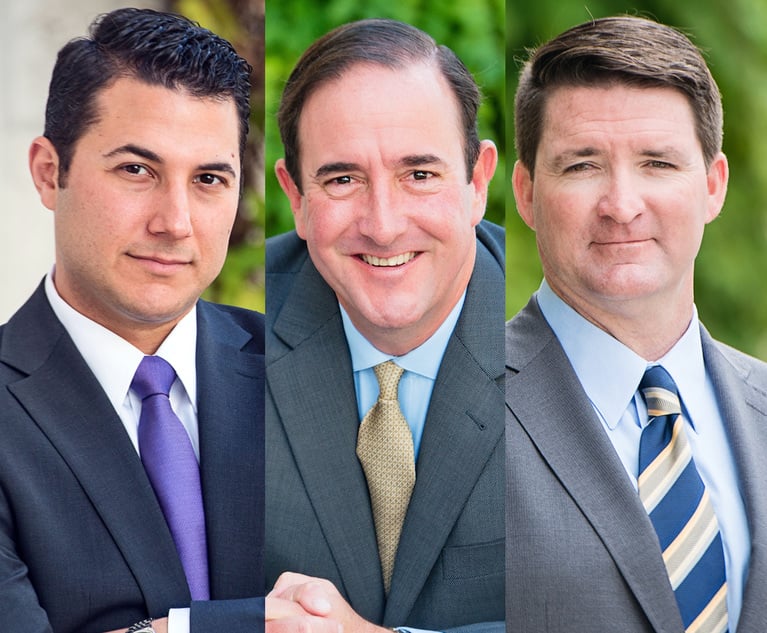
Florida Retention Ponds Scrutinized in Lawsuit After Latest Child Drowning
Trending Stories
Who Got The Work
J. Brugh Lower of Gibbons has entered an appearance for industrial equipment supplier Devco Corporation in a pending trademark infringement lawsuit. The suit, accusing the defendant of selling knock-off Graco products, was filed Dec. 18 in New Jersey District Court by Rivkin Radler on behalf of Graco Inc. and Graco Minnesota. The case, assigned to U.S. District Judge Zahid N. Quraishi, is 3:24-cv-11294, Graco Inc. et al v. Devco Corporation.
Who Got The Work
Rebecca Maller-Stein and Kent A. Yalowitz of Arnold & Porter Kaye Scholer have entered their appearances for Hanaco Venture Capital and its executives, Lior Prosor and David Frankel, in a pending securities lawsuit. The action, filed on Dec. 24 in New York Southern District Court by Zell, Aron & Co. on behalf of Goldeneye Advisors, accuses the defendants of negligently and fraudulently managing the plaintiff's $1 million investment. The case, assigned to U.S. District Judge Vernon S. Broderick, is 1:24-cv-09918, Goldeneye Advisors, LLC v. Hanaco Venture Capital, Ltd. et al.
Who Got The Work
Attorneys from A&O Shearman has stepped in as defense counsel for Toronto-Dominion Bank and other defendants in a pending securities class action. The suit, filed Dec. 11 in New York Southern District Court by Bleichmar Fonti & Auld, accuses the defendants of concealing the bank's 'pervasive' deficiencies in regards to its compliance with the Bank Secrecy Act and the quality of its anti-money laundering controls. The case, assigned to U.S. District Judge Arun Subramanian, is 1:24-cv-09445, Gonzalez v. The Toronto-Dominion Bank et al.
Who Got The Work
Crown Castle International, a Pennsylvania company providing shared communications infrastructure, has turned to Luke D. Wolf of Gordon Rees Scully Mansukhani to fend off a pending breach-of-contract lawsuit. The court action, filed Nov. 25 in Michigan Eastern District Court by Hooper Hathaway PC on behalf of The Town Residences LLC, accuses Crown Castle of failing to transfer approximately $30,000 in utility payments from T-Mobile in breach of a roof-top lease and assignment agreement. The case, assigned to U.S. District Judge Susan K. Declercq, is 2:24-cv-13131, The Town Residences LLC v. T-Mobile US, Inc. et al.
Who Got The Work
Wilfred P. Coronato and Daniel M. Schwartz of McCarter & English have stepped in as defense counsel to Electrolux Home Products Inc. in a pending product liability lawsuit. The court action, filed Nov. 26 in New York Eastern District Court by Poulos Lopiccolo PC and Nagel Rice LLP on behalf of David Stern, alleges that the defendant's refrigerators’ drawers and shelving repeatedly break and fall apart within months after purchase. The case, assigned to U.S. District Judge Joan M. Azrack, is 2:24-cv-08204, Stern v. Electrolux Home Products, Inc.
Featured Firms
Law Offices of Gary Martin Hays & Associates, P.C.
(470) 294-1674
Law Offices of Mark E. Salomone
(857) 444-6468
Smith & Hassler
(713) 739-1250





